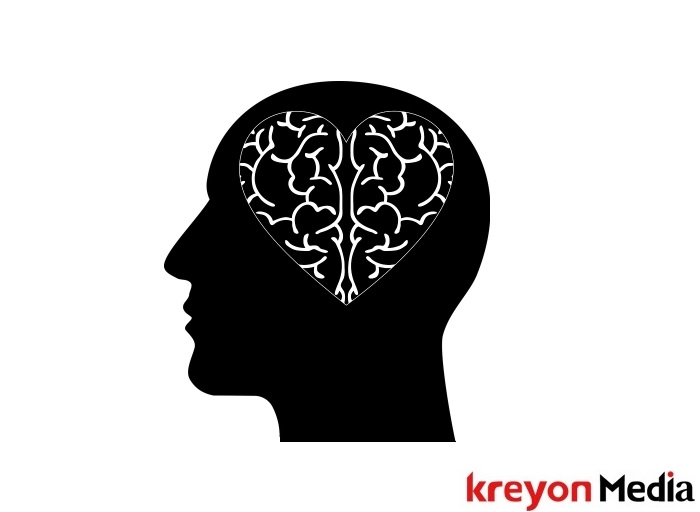
Improving your emotional intelligence can help you understand and connect better with others. It can help you develop stronger relationships, handle conflicts effectively & rise up the ladder of leadership. Success at work is no longer limited to your cognitive abilities, it needs emotional intelligence to have a deep perception of people and the world around you.
Emotionally intelligent people understand their emotions and feelings. They also understand the emotions and feelings of other people. They use the emotional understanding and information to guide their thinking and behaviour, to adapt and achieve one’s goals.
A study done by TalentSmart measured 33 workplace skills, intriguingly emotional intelligence was the strongest predictor of performance, and accounted for 58% of success in all types of jobs. 90% of top performers have high emotional intelligence, whereas only 20% bottom performers have high emotional intelligence.
Another fascinating study on emotional intelligence followed 80 scientists over the course of forty years. It found that social and emotional abilities were four times more important than IQ in determining professional success and prestige.
Several studies have shown a strong correlation between high emotional intelligence and top performance. So, here are some practical ways to improving your emotional intelligence:
1. Develop Routines
Emotionally intelligent people develop routines. They take practical steps to trigger their day to day activities. For e.g. the most influential and effective leaders have morning routines. They start their day by running, exercising or meditating. They follow their routines each day without fail.
These routines help them get in the right frame of mind to take the day forward. It sets them up in the right mood to carry out challenging tasks at work. Build a morning routine that can help you start your day on a positive note. You can start with a 5 minute walk, then gradually increase it by 5 minutes every week, until you can devote 25-30 minutes at least.
2. Action Bias

It is easy to be moody, turbulent and lose focus of the most important things in life. But these things are not going to matter in the long run. The distractions today will be worthless tomorrow. Emotionally intelligent individuals are self driven, they are focused, they control their emotions and feelings to achieve their goals.
Overcoming inertia and impulsiveness requires you to take action. Successful people take actions. They don’t clutter their heads with unnecessary disturbances. They do what is needed. Eliminate things that don’t help you reach your goals and overcome hurdles by taking actions
3. Managing Relationships
Good relationships are integral to success in the workplace today. Whether it is your subordinates, family or your colleagues, managing relationships can be a key step to your career & family goals.
People who have emotional intelligence are able to manage their relationships better, they handle conflicts, negotiations and develop interpersonal interactions effectively.
Learning to manage & dealing with other people requires you to respect their perspective. Good leaders develop the art of understanding the feelings and emotions of others. They are able to rally behind a common goal despite the difference of opinions & make use of collective strength for overcoming difficult problems.
4. People Focus

In the modern workplace and life, technology and work takes priority for everyone. It is easy to lose focus of people. Individuals and high achievers are good at recognizing the feelings of others. They also develop their ability to decipher their verbal and nonverbal cues. For e.g. a colleague who is attending to a family emergency may not be fully tuned to work. An emotionally intelligent colleague will go the extra mile to make his colleague comfortable.
Small acts like this can go a long way in building good culture, strengthening your relationships and making a difference to the people around you. Emotionally intelligent people have a strong focus on people around them.
It is people who drive systems, technology and work, not the other way around. A people centric focus also helps individuals understand their client needs and wants, before they articulate them. Whether it is the organisation, family or clients, a people focused approach pays rich dividends.
5. Control Emotional Triggers
Emotional triggers cause impulsive behaviour. When you are emotionally turbulent, it can make you a vulnerable target. People who move up the ladder of leadership in various spheres know how to control their emotions.
Emotionally intelligent individuals don’t react instantly. They control their impulses and evaluate the situation before they respond. For e.g. when something is wrong, how you point out the correction is more important than the correction itself. Your task is to get the correction done, not to make the other person feel down for his mistake.
When something angers you, take a moment out, ignore and evaluate things in the proper perspective. Reacting impulsively can damage relationships and hurt other people. Sometimes, a detached and calm approach works best for things we care about the most.
6. Intersection of Goals & Happiness

Emotional intelligence leads to great results, but not at the cost of people. Organisations are in a state of flux due to dynamic and demanding work priorities. It can make leaders feel threatened, overwhelmed and take a short term view of things, this is where emotional intelligence matters.
People with high emotional intelligence are able to develop a deep rooted understanding of individuals and teams. They help each other become more effective in their work, derive happiness in reaching shared goals and progress as individuals too.
Emotionally intelligent leaders are able to align people in the right direction to display their passion, creativity and potential. They take cues to make sure their teams are happy and aligned to what they are doing.
7. Self Analysis
Improving your emotional intelligence requires self analysis. It needs self awareness. Do you understand yourself well? Do you take time out to reflect on how you are doing? Self evaluation is critical to developing and improving emotional intelligence.
Successful people are able to spend their energy doing what they love and want. They do things that matter the most. They are able to channelise their energies, thoughts and emotions.
When you radiate positivity in your actions and mind, it draws people towards you. On the other hand, negativity will distance others from you. Successful persons use positive emotions to inspire, influence, and create an impact in things they do.
Think about how you use your time, thoughts and energy. Are you able to spend them as well as you can? Great results and success is never achieved by chance. Be conscious, self aware and take time to reflect on how you can improve things you are doing.







